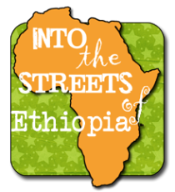What does your child's Ethiopian name mean?
Here are some sites to help you determine the meaning of your child's name. Try Ethiopian, Amharic, Eritrean names when you have the option to search.
Some are under construction, but should be back up soon, so check it again if it does not work now.
Best sites:
http://ethiopia.limbo13.com/index.php/ethiopian_names/
http://myethiopianame.bravehost.com/
http://www.aacasa.org.au/meanings-of-ethiopian-names.html
Other sites:
http://www.baby-names-and-stuff.com/ethiopian-baby-names/
http://www.top-100-baby-names-search.com/meanings-of-ethiopian-names.html
http://babynamesworld.parentsconnect.com/category-ethiopian-names.html
http://www.babynamescountry.com/origins/ethiopian_baby_names1.html
Here you can purchase your name meaning and translation and written for you:
http://www.ethiotrans.com/ethiopian_names.htm
How did my child get his or her name?
- First name is the name given by a parent or significant caregiver.This name usually has significance. A child is named for a blessing, hope or promise, a character trait they hope the child will have or a saint or holy name. Example: Muluken means good day. A translation from an Ethiopian man I met says that this name has a deeper meaning. It means, "the day I got all I ever wanted or dreamed of". This is a name for a boy, a father counting his blessings on the day his son is born. What a great name!
- Second name is the name of the child's father. This keeps track of who they belong to, their line of heritage.
- Most kids will also have a third name which will be their grandfather on their father's side name. In some places they will add more in order to trace the family line. In adoption papers rarely is the third or fourth or beyond name mentioned or recorded. An older child may or may not be aware of those names.
- Your child's name gives him or her roots. This is very important.
http://www.aacasa.org.au/meanings-of-ethiopian-names.html
http://ianfamily.blogspot.com/2010/01/ethiopian-names-and-meanings.html
What about nick names?
A child may or may not know his or her full name. Nick names are common.
- You will often find a shortened version of the name. For example: Nateneal or Natan is usually Nati. Muluken is Mulu. Freiwhat is Frei. Abigel is Abi.
- A child may also be called the name for little sister, youngest brother, sweet tiny one, my son, or another such enearing name. The child may actually believe that is their name.
- In English we often add an y on the end of a name for a term of endearment. This is also the case in Ethiopia. It is a bit different but is similar in concept. Yay or y/e/i is often added to the end of a name. Example: Kedus would be Keduse. Nateneal is Nati. So the name can be shortened and add the fondness syllable or just have it added to the end of the full name.
- This is a very personal decision. One that deserves a great deal of thought and sensitivity.
- If your child is an infant he or she could likely more easily adapt to a new name.
- An infant found may have a name given to them by police instead of relatives.
- If your child is older they are likely attached to their name, but may express a desire to have a name from you, an American name or a name that represents their new life. Some kids don't.
- Your child has lost everything except their name. I will strongly suggest that you keep it as part of their name, first or middle. A name is usually very important.
- A name may have an unacceptable connotation or nick name when heard in English. This is sensitive as we do not want to take the name and also do not want to see the child have issues because of it. Example: Nati is heard like naughty. This is not really a great connotation. The nick name is easily adjusted to Nate. Name kept. Others are not so easy.
- There are many factors, your own personal comfort level being one of them. Are you proud of your child's heritage?
- Fitting in is very superficial when it comes to names. Kids learn each others name by hearing. Teachers are quick learners. A name that goes with the family is something, but not everything. Feeling like part of the family may start with the name but it certainly does not stem from the name. Feeling like part of the family is really deeper than a first name. The name could help. Maybe.
- Despite the articles and fears of having a different sounding name, some of the most successful people in our day and age have unique names. Think of the current president, sports stars, actors and actresses, musicians, tech wizards, etc. No longer are Jane or John the standard. Even names that are common are spelled or altered in ways that keep you guessing. Khrystyne, Britni, Sofi, Davin, Zakari. Even some of the old standards are so unique they seem new. Linleigh (boy), Hattie, Dagney, Bracken, Theoran, Hildy. We have a number of immigrants who give their kids great names of their heritage. Krish, Anu, Zorah, Mishka, (Y)Jana, Marisha, Niklas, Zari. Not to mention all the names parents make up to be unique. There is no such thing as a truly American name. It is the melting pot after all. So, throw in a Mulu and a Frei. So, I guess I am not buying the "a funny name will put them back in their career" idea. Sure, maybe in the past, maybe to some degree now (certainly waning a great deal), but in the future, no, I don't think so. I mean really, our president is Barack Obama. How different is that from Kedus Khaliqi?
So, go with what you feel you need to do, with what your child needs regarding his or her name. Think carefully, weigh all the options. Make your choice and be sure of it.














































